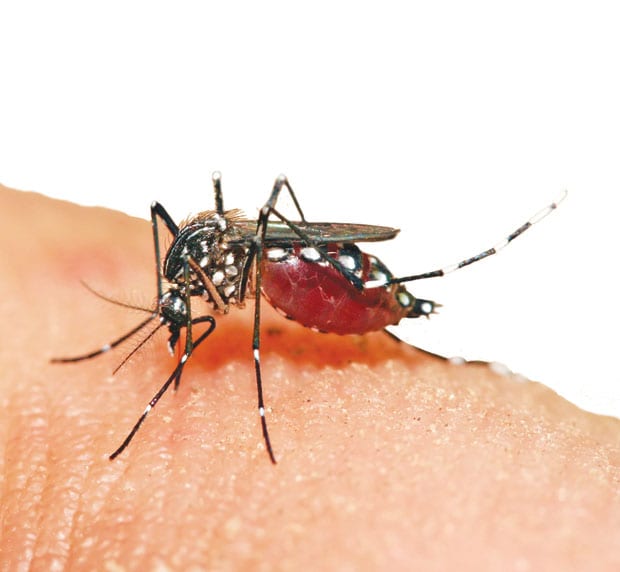DCHHS will spray for mosquitoes carrying West Nile and chikungunya viruses

DAVID TAFFET | Staff Writer
Dallas County Health and Human Services began its information campaign on mosquitoes and transmission of disease early this year after health officials counted 10 cases of chikungunya virus in Dallas County last year.
The virus is spread by mosquitoes.
Dallas County has been spraying for mosquitoes that carry the West Nile virus for several years.
There were no cases of chikungunya (pronounced chicken-gun-ya) in the Western Hemisphere until 2013 when the first case appeared in the Caribbean.
Dallas County health department officials believe that all 10 local cases of the virus were brought to Dallas by travelers. There are no confirmed cases of local transmission.
People can’t spread the virus to each other, but are responsible for the spread of chikungunya: A mosquito becomes a carrier of the virus when it bites an infected person and then spreads the virus when it bites another person.
That’s different from the way West Nile is transmitted. With that virus, a mosquito becomes a carrier when it bites an infected bird and spreads infection when it bites a person.
Because of the way the virus is spread, people diagnosed with chikungunya are asked to remain indoors to prevent transmission to others.
The two local mosquito varieties that can carry chikungunya are most active in the daytime. The type that carries West Nile is a nighttime mosquito that’s most active at dawn and dusk, according to DCHHS spokeswoman Erikka Neroes.
“Mosquito season is typically May to November,” Neroes said, adding that officials spray for mosquitoes after catching mosquitoes in traps that test positive for either of the viruses.
Common symptoms of chikungunya include high fever and joint pain. Headache, muscle pain, joint swelling and rash may also occur. According to the Centers for Disease Control, there’s no medication to treat chikungunya and no vaccine for it. Symptoms appear three to seven days after the patient is bitten by an infected mosquito.
Most people recover after a week, but some patients are plagued by long-term joint pain as a result of the illness.
Dr. John Carlo, executive director of AIDS Arms, said that in dealing with any infectious disease, those living with AIDS may experience more severe symptoms than someone who is not immune-compromised.
So far there have been 2,333 travel-associated cases of chikungunya in the U.S., with 69 of those in Texas. No deaths have been reported.
This article appeared in the Dallas Voice print edition January 30, 2015.















